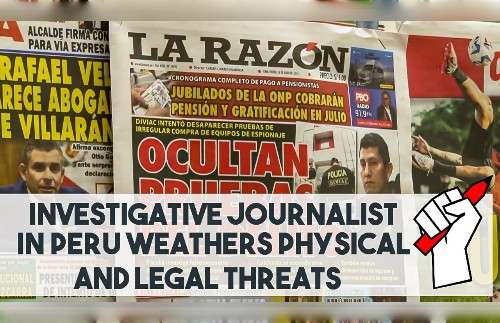
Reporters Without Borders (RSF) has lodged a complaint for crimes against humanity with the Swedish courts for the Eritrean-Swedish journalist Dawit Isaak. In secret since 2001, the world’s oldest detained journalist must finally be the subject of a serious investigation so that those responsible for his fate can be prosecuted and convicted.
The complaint filed on behalf of RSF on 21 October 2020 by two Swedish lawyers to the Stockholm Prosecutor’s Office for International Crimes, denounces acts of crimes against humanity, torture, kidnapping and enforced disappearance of which the Eritrean journalist Dawit Isaak , who also holds Swedish nationality. This complaint targets eight suspects, including President Isaias Afwerki – in power in Eritrea since 1993 – the Eritrean Ministers of Foreign Affairs, Justice, and Information, as well as advisers and members of the administration and services security of this country in northeastern Africa.
“ As high as they are, the individuals who threw Dawit Isaak in prison and who have left him there for almost 20 years , must be held criminally responsible. It is therefore urgent that the Swedish justice finally opens a criminal investigation , declares the lawyer and Nobel Peace Prize winner, Shirin Ebadi, co-signatory of the complaint. As long as these people can act with impunity, as long as the states which can do not seek to convict them, justice in Eritrea cannot progress. ”
Arrested in September 2001, during raids ordered by President Afeworki against opponents and independent media journalists, and when he returned to his country to serve “a free Eritrea” and open a reformist media, the journalist and poet Dawit Isaak has since been held incommunicado. For nearly 20 years, he has never been allowed to see his lawyers or his family, nor could he be visited by the United Nations or Swedish representatives, despite his Swedish nationality and despite numerous requests. The last proof of life dates from 2005. He is likely to be held in appalling conditions in a hot container , in the middle of the desert, at the Eiraeiro detention center on the Red Sea.
RSF’s lawyers lodged a first complaint in Swedish courts in 2014. The attorney general of Stockholm admitted that “ crimes against humanity, at least in terms of enforced disappearance” had been committed against Dawit Isaak in Eritrea, that these crimes were the responsibility of Swedish courts, and that “ serious reasons” allowed a preliminary investigation to be opened. But after a consultation with the Foreign Ministry having concluded that such an investigation “ could affect the relations of Sweden with Eritrea ” and therefore risk “ diminishing the chances of acting for the release ” of Dawit, no proceedings were finally initiated.
“ Such an argument is no longer admissible ,” says RSF legal officer Paul Coppin . Five years after this decision, Dawit Isaak is still missing, the Swedish authorities have obtained nothing, neither his release, nor even a visit or proof of life. The numerous resolutions or condemnations of international bodies, including the Human Rights Council and the African Commission on Human and Peoples’ Rights, have also not made it possible to change the situation. It is therefore urgent, today, to take criminal action. ”
Swedish Foreign Minister Ann Linde, at a hearing in Parliament in Stockholm in 2019, was herself “ forced to conclude that Eritrea in no way listened to our concerns and did not respond to them. continuation ”.
The complaint filed on behalf of RSF aims to push the Swedish justice system to apprehend those people considered responsible for the journalist’s fate if they travel on its soil to try them, and if necessary to issue international arrest warrants. While the catastrophic human rights situation has not seen any progress in Eritrea for almost 30 years, Swedish justice can have a decisive impact in helping Dawit Isaak and all the other journalists detained since 2001, but also in putting end impunity for crimes committed in Eritrea, and contribute to an improvement of press freedom in the country.
Written and filed by lawyer Percy Bratt and lawyer Jesús Alcalá, the complaint was co-signed by the journalist’s brother, Esayas Isaak, historian and international expert Susanne Berger, also coordinator for the Raoul Wallenberg Research Initiative, Björn Tunbäck, in charge of the Dawit Isaak teamwithin the Swedish section of RSF, and Antoine Bernard, international lawyer and litigation advisor for RSF International. Eleven leading international legal and personalities also joined: 2003 Nobel Peace Prize Laureate Shirin Ebadi, Former High Commissioner for Human Rights Navi Pillay, Former President of the African Commission on Human Rights of Man and Peoples Pansy Tlakula, former Canadian Minister of Justice Irwin Cotler, lawyer and member of the Human Rights Committee of the German Federal Bar Bernhard Docke, international human rights lawyer Male David Matas, the director of the Eritrean Law Society Daniel Mekonnen, Franco-British lawyer and president of PEN in the UK Philippe Sands, executive director of the Center for Human Rights and Development in Africa Gaye Sowe, director of the Straniak Academy for Democracy and Human Rights Hannes Tretter, and the director of the Center for Human Rights at the University of Pretoria Frans Viljoen.
Eritrea occupies178th place out of 180 in the World Press Freedom Index established by RSF in 2020.
Copyright ©2016, Reporters Without Borders. Used with the permission of Reporters Without Borders(RSF), CS 90247 75083 Paris Cedex 02 https://rsf.org
Escaping from Scam Center on Cambodia’s Bokor Mountain
UN Security Council Meets to Discuss Children and Armed Conflict
10 Shocking Revelations from Bangladesh Commission’s Report About Ex-PM Hasina-Linked Forced Disappearances
Migration Dynamics Shifting Due to New US Administration New Regional Laws
UN Security Council Meets to Discuss the Maintenance of International Peace and Security and Artificial Intelligence
Winter Brings New Challenges for Residents living in Ukraine’s Donetsk Region
Permanent Representative of Israel Briefs Press at UN Headquarters
Hospitals Overwhelmed in Vanuatu as Death and Damage Toll Mounts from Quake
Subscribe Our You Tube Channel
Fighting Fake News
Fighting Lies




















